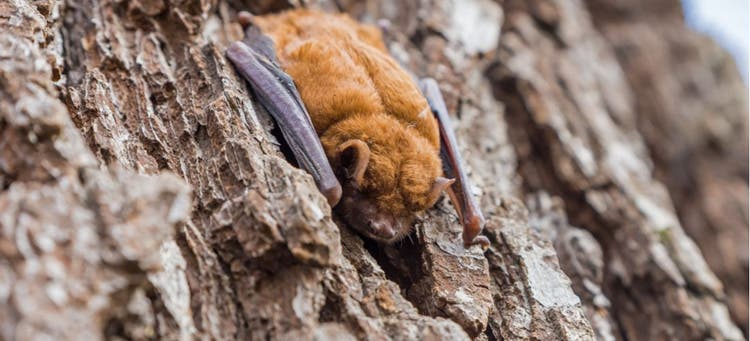
How Bats Help Get Rid of Mosquitoes
Mosquitoes are a huge problem for people around the world. They carry deadly diseases, inflict itchy bites, and ruin outdoor activities. But did you know that bats are natural mosquito predators and can help get rid of these stubborn pests? Keep reading to learn about how bats hunt insects, how many mosquitoes they eat, and how you can attract them to your yard.
What Do Bats Eat?
A bat’s diet is mostly made up of night-flying insects like moths, flies, and mosquitoes. They will eat most insects, including some that are considered pests to gardens and crops such as beetles, leafhoppers, planthoppers, stink bugs, thrips, whiteflies, and aphids. Aside from insects, some species of bats eat nectar, pollen, fruit, and even small animals like frogs, lizards, and mice.
How Do They Hunt Insects?
In general, bats are shy and reclusive nocturnal animals that will avoid contact with humans whenever possible. However, when it comes to hunting for food in the dark of night, a colony of bats can quickly shift from being afraid of their surroundings to becoming bold predators focused on one thing: finding dinner.
Bats use echolocation to hunt insects at night because many bugs are more active once the sun goes down. Echolocation is a type of biological sonar used by bats and other animals like dolphins, toothed whales, and some species of birds. Bats make high-pitched sounds that bounce off nearby objects including bugs flying in the air. They can then use the echoes to determine the location, size, speed, and direction of their prey.
Do Bats Eat a Lot of Mosquitoes?
Bats are opportunistic hunters, and if mosquitoes are abundant, they will certainly take advantage of the easy meal. One study found that bats can eat as many as ten mosquitoes per minute. This means that a single bat could potentially eat more than 6,000 mosquitoes per night! In reality, the number of mosquitoes a bat can eat will depend on several factors. These include the bat’s size and weight, their species, and whether other food sources are available.
Can They Effectively Control the Mosquito Population?
While it’s true that bats do eat mosquitoes, the jury is still out on whether or not they have a significant impact on the overall mosquito population. According to WebMD, mosquitoes make up less than 1% of a bat’s diet, and they prefer other insects like beetles, spiders, and moths. What’s more, some species of mosquitoes are active mainly during the day, so they are unlikely to be on the menu for nocturnal bats.
However, a recent study conducted by researchers from the University of Wisconsin-Madison paints a more optimistic picture. According to the researchers, “bats eat more types of mosquitoes, and do so more frequently, than studies have shown in the past.” So, while it’s unlikely that bats will get rid of all mosquitoes in your yard, they may limit their population enough to make a big difference.
How Can You Attract Bats to Your Yard?
There are several things you can do to attract bats to your yard and help them get rid of mosquitoes and other pests. First, consider hanging a bat house so that these nocturnal hunters have a safe place to roost during the day. You could build one out of wood or buy a premade bat house from a DIY store or online.
Next, make sure to provide a water source with easy access to fresh, clean water. Installing a birdbath or fountain is a good option if you don’t have a pond in your yard. Planting insect-friendly plants is another great way to attract bats. Flowers that release their scent at night will help keep your yard buzzing with activity after the sun goes down. Some great options include buddleia, jasmine, honeysuckle, petunia, and wisteria.
Finally, consider leaving some areas outside of your home wild and overgrown with shrubs and trees to provide a natural habitat. You should also avoid using any chemicals in your yard, as they can kill the insects that bats rely on for food. Bats are fantastic hunters that make the outdoors a safer place by getting rid of harmful mosquitoes. By providing them with food, water, shelter, and a natural habitat, you’ll help attract more of these friendly flying mammals to your yard.